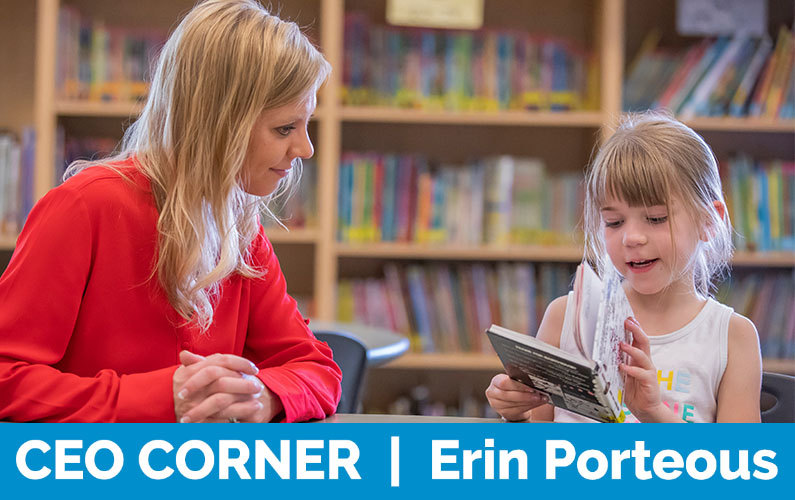By Erin Porteous, CEO
Any new parent will tell you that the moment that little being arrives into the world, the concept of “safety” takes on an entirely new and different meaning. As parents, we first worry about physical safety, especially when littles become mobile. But it’s not too long after that that our definition of safety expands yet again, taking on another meaning: emotional safety.
Guiding and supporting children through the complex processes of mental and emotional growth is arguably more difficult than keeping them physically safe. From developing resilience and coping strategies to building confidence and self-awareness, we know these skills are absolutely essential as our kids grow into who they are becoming. And it is only with these building blocks in place that we can meet the needs of our kids and ensure the mental and emotional wellness of the next generation.
And we know the needs of this generation of children are great. Crisis Point reports that the impacts of the pandemic and racial injustice will negatively affect the mental health of youth, resulting in increased anxiety, loss of social connection, and increased need for mental health services. This generation of kids also faces the new challenge of digital safety, which is even more pronounced today than it was one year ago, with the shift to online learning. All of these findings are made all the more salient as we head into May, which is Mental Health Awareness Month.
But we also know that after school and youth programs are significant drivers of positive youth development, helping children navigate the process of growing up so they can become healthy adults. This is why, at Boys & Girls Clubs of Metro Denver, we put a pronounced emphasis on behavioral health, with a team of 12 that includes 7 Club-based licensed clinical social workers.
Our approach is based on social-emotional learning, which has been shown to not only boost the efficacy of our programs, but to build important soft skills like conflict resolution and communication. We offer care that addresses the many unique needs of individual children, from basic necessities, to caring adult and peer relationships, to a wide variety of programs that enrich their lives. Through relationships with trusted adults and connection to a caring community, our Club kids have the supports they need to build a strong foundation of mental and emotional well-being. We also ensure safeguards are in place for our Club kids in this digital age, which is particularly important as we provide access to technology and the world of virtual learning.
And it works. Our Club members are more resilient than their peers and they are more likely to be involved in their communities and have stronger friendships. The Mayo Clinic reports that strong friendships have significant positive impacts for kids, including a better sense of belonging, adoption of healthier lifestyle habits, and ability to help others cope with traumatic events. In short, much of what we are able to offer our Club kids goes far beyond the individual impact on a single child; it has a positive ripple effect on the people and communities surrounding that child as well. In this way, our Clubs are both physical hubs in the communities we serve, but they are also hubs of social, emotional and mental well-being.
Throughout the month of May, our behavioral health team members and Club staff will be engaging with our Club kids in a wide variety of activities and workshops that foster mental health. I encourage you to check out our social media channels for a glimpse into the magic. Together, we are creating safe spaces for our Club kids to grow and thrive, from the inside out.
Note: The photo for this blog was taken before the COVID-19 pandemic.

